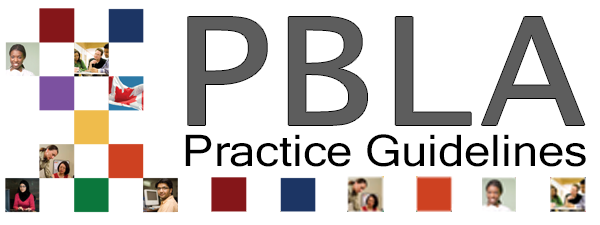PBLA Accountability – Sharing Responsibility for Success
PBLA Practice Review Framework
PBLA Practice Review Framework
A large-scale initiative such as PBLA works best when responsibility for success is shared. In PBLA, this interdependence has been articulated in two important contexts: a framework for a practice review, and the statements of stakeholder roles.
The PBLA Practice Review Framework (CCLB, 2019) downloadable from the sidebar, is a self-assessment framework developed to support PBLA sustainability. It recognizes that the responsibility for PBLA success is shared by teachers, programs, funding authorities engaged in monitoring language programs, and national authorities responsible for setting language policy. It recognizes that continuous learning and self-assessment is an essential part of both classroom assessment practice and professional practice (CCLB, 2019).
The framework is based on the work of the Assessment Reform Group in the UK, whose research and writing influenced many of the assessment principles underlying PBLA. They, along with 200 other assessment experts, were part of the Analysis and Review of Innovations in Assessment (ARIA) project, working together to better understand the processes that support the sustainability of large scale teacher assessment initiatives (Harlen, 2010). The group found that sustainability depends on agreed-upon assessment principles and standards, to ensure that all stakeholders share an understanding of the aims of assessment, and can assess its effectiveness (Harlen, 2010, p. 8).
The Practice Review Framework was developed and piloted in five LINC programs across Canada from November 2016 to March 2017. Feedback from the pilot led to revisions and a national roll-out of the framework. In March 2019, a report based on data from Cohort One and Cohorts 2/3 from October 2017 – March 2019 was produced (Moving Forward a Summary of Feedback, Recommendations and Actions Cohort One and Cohorts 2/3).
The following broad principles, adapted from the ARIA project, inform the PBLA initiative.
PBLA works best when classroom teachers, lead teachers, administrators and funders work together to support effective assessment practices. A number of roles and responsibilities are in place to ensure this happens.


